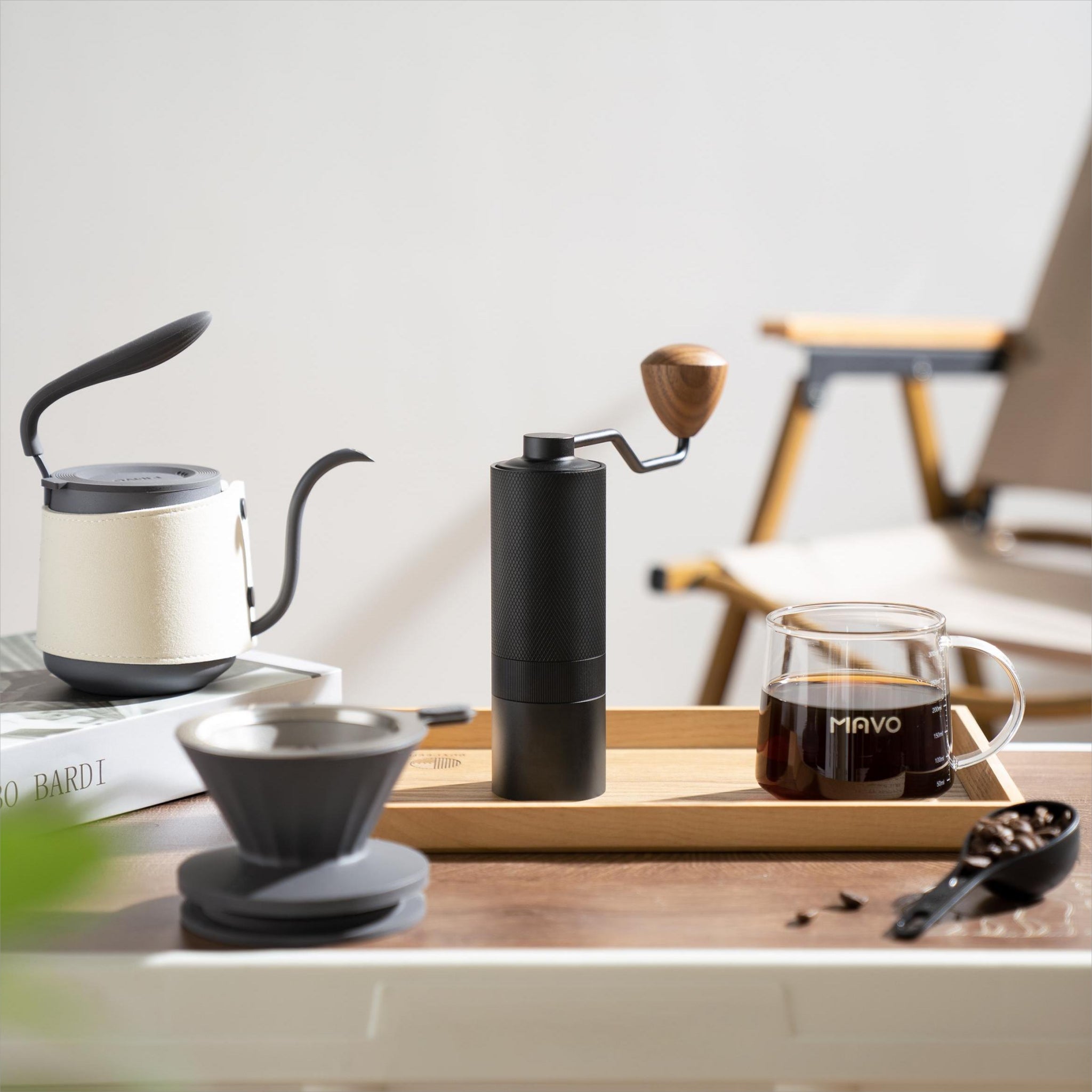
What Not to Do Will Define Who You Are: A Founder’s Perspective
At Coffee Analytica, the philosophy of "what not to do" is an “unwritten” principle deeply rooted in the way I make decisions as a founder. Over the years, I’ve come to realize that the things I choose not to do often shape the identity of Coffee Analytica as much as the actions I take. In this blog, I’ll explore the concept of defining yourself by what you choose to avoid, sharing real-life scenarios from my journey as a founder.
The Philosophy: Why What You Don’t Do Matters
It’s easy to define yourself by your to-do list, your goals, and your achievements - and ultimately, your ambitions. But often, it’s the things you consciously choose to avoid - the ethical shortcuts, unnecessary distractions, and mismatched opportunities—that truly carve out your identity. By setting boundaries and adhering to them, you build a foundation that reflects your core values.
In the business world, these boundaries are particularly crucial. As entrepreneurs, we’re inundated with opportunities to take the “easy win,” chase fleeting trends (I’ve spent hours glued to trending topic charts on Instagram and TikTok), or compromise our principles for short-term gains (I still have an inventory of products I thought I could sell quickly in the first year of ordering). Yet, every decision to say "no" creates space to focus on what truly matters, ensuring your business remains aligned with its mission.
Example 1: Rejecting Subpar Suppliers
In late 2022, when Coffee Analytica was still in its ideation stage, I was approached by a supplier offering coffee gear at prices that seemed too good to be true. They promised quick turnarounds and high margins. Tempting, right? But when I visited their warehouse on the outskirts of Chengdu, Sichuan, China, it became clear their quality control was almost non-existent, and they couldn’t provide guarantees about their labour practices. Their promises of high margins didn’t outweigh these risks.
- What Not to Do: I chose not to work with this supplier, even though it meant spending more time initiating conversations with other potential suppliers and visiting their factories.
- Outcome: This decision reinforced Coffee Analytica’s commitment from the very beginning to only sourcing high-quality, ethically made products. The manufacturers we partnered with became more than suppliers - they became trusted allies who shared our vision for quality and accountability. Retailers noticed the difference in both product quality and the exceptional support we could provide, building trust that continues today.
Example 2: Saying No to Overproduction
In mid-2023, as demand for manual brewing gear surged, I faced a dilemma. Ordering larger volumes would lower unit costs and potentially boost profit margins. However overstocking risked creating excess inventory, leading to waste and unsustainable practices.
- What Not to Do: I decided against overstocking, opting instead for small, carefully managed batches of coffee gear.
- Outcome: This decision aligned with our mission to promote sustainability while minimizing financial risk. Eco-conscious retailers valued our intentionality and saw us as partners who were mindful of inventory. I vividly recall one retailer in Sydney commenting, “Your approach gives us confidence that we’re not just stocking products - we’re part of a sustainable supply chain.”
Example 3: Avoiding Aggressive Marketing
In early 2024, I attended a marketing workshop in Sydney. The speaker, a renowned name in the industry, advocated for high-pressure tactics, such as exaggerated urgency and limited-time offers, to drive sales. While I understood their effectiveness, these tactics clashed with Coffee Analytica’s core values of authenticity and transparency.
- What Not to Do: I chose not to adopt aggressive sales tactics, even if it meant slower initial growth.
- Outcome: Instead, I focused on genuine relationships with retailers and customers. By being upfront about our capabilities and limitations, we’ve built long-term partnerships rooted in trust. This authenticity is a cornerstone of our identity and has helped us attract a loyal customer base that values honesty over hype.
Example 4: Rejecting Misaligned Partnerships
In late 2024, I had the opportunity to collaborate with a few micro-influencers, each boasting tens of thousands of followers. While the collective exposure could have been game-changing, their focus on fast fashion and indiscriminate promotion clashed with Coffee Analytica’s commitment to sustainability and premium quality.
- What Not to Do: I declined the collaboration opportunity, despite the potential reach.
- Outcome: This decision reinforced our brand’s authenticity and attracted like-minded customers who value trust, thoughtfulness, and sustainability.
Conclusion: Boundaries Define Identity
These stories illustrate that what we choose not to do is as important - if not more so - than what we actively pursue. Which company doesn’t want better scale, more exposure, and a larger customer base? Of course, we do. But for Coffee Analytica, the boundaries we’ve set reflect our commitment to quality, sustainability, and community. We believe these principles will sustain us for the long term.
Whether you’re running a business or navigating your personal journey, I encourage you to think deeply about what you’re willing to say no to. Every “no” is a statement of purpose, a reflection of your values, and a step toward building a life and business you can truly be proud of.
Defining yourself by what you don’t do isn’t about restraint - it’s about creating space for what truly matters. At Coffee Analytica, that means making decisions that honour our mission, support our partners, and leave a lasting, positive impact on the coffee industry and the world around us.
- #Australian Coffee
- #BECI
- #Bootstrapping
- #Boundary
- #circular economy
- #Code of Ethics
- #coffee analytica
- #Coffee Industry
- #Community
- #Community Engagement
- #decision making
- #eco-friendly
- #Entrepreneur
- #Environmental
- #ESG
- #Governance
- #Impact
- #inspirational
- #leadership
- #Lean
- #Marketing
- #Philosophy
- #Reflection
- #Social
- #success
- #Sustainability
- #sydney